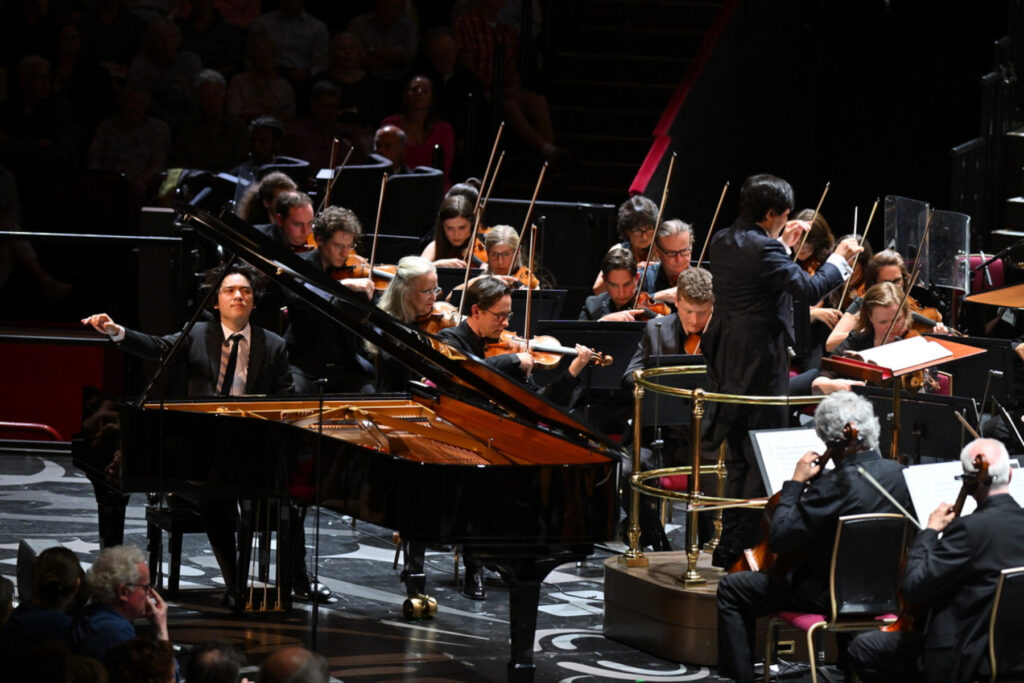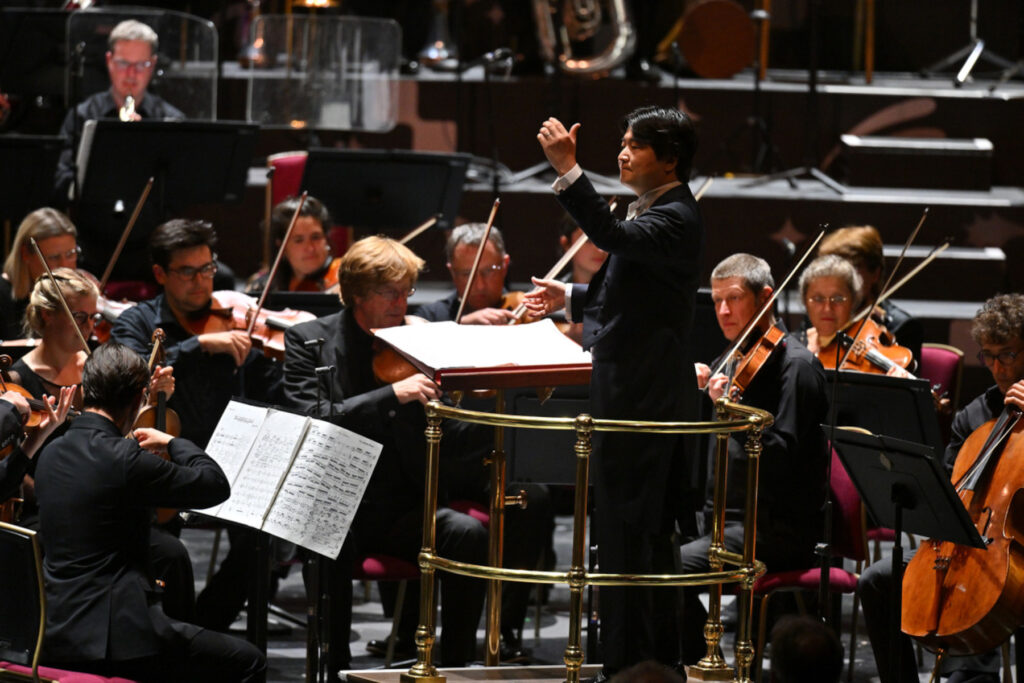Is Berio’s Sinfonia a masterpiece, or a work of its time that today seems outdated? Written in 1968 during a time of revolution it is not in itself a work of revolution – although original, anti-symphonic (the use of the term sinfonia by Berio alluding to this) and its innovative relationship between the use of music and vocal text still makes it one of the most important post-modernist works of its kind. Inspired by the assassination of Martin Luther King (principally the subject of the work’s second movement), Sinfonia is a juxtaposition of sound that can be both jarring and evocative: words, either spoken or sung, are both intelligible and vague. They are found in several languages; and they are fragmented, or simply syllabic. Each performance is in a sense improvisatory – with spoken introductions by the singers (this performance just happened to also quote the CBSO by name, too). Writers come and go: James Joyce, e.e. cummings, and Samuel Beckett, whose 1953 monologue The Unnamable forms the backbone of the vast third movement.
That movement, in essence the very heart of Sinfonia, is a vast collage of music centred on the scherzo from Mahler’s Resurrection Symphony. Berio described the presence of the scherzo in Sinfonia as like “a river running through a constantly changing landscape”: what we hear of the Mahler is at times totally recognizable; at others it drops out, “its details lost in the surrounding forest of musical presences”. The ear will hear within this collage an array of other composers: Beethoven, Berg, Brahms, Debussy, Ravel, Stravinsky and even Stockhausen. Mahler returns in the short fourth movement, with an allusion to Urlicht and its opening words “Roses of blood”. The fifth movement, in some ways the most virtuosic, is dynamic – and welds together music from the four preceding movements in spectacular fashion.

Kazuki Yamada and the CBSO gave a compelling argument for Sinfonia, in a performance that was technically tight, and rich in detail. Tempi were on the spacious side, especially in the third movement. The eight soloists of the BBC Singers were outstanding, amongst the best I have heard in a performance in this work. Berio makes considerable demands on his singers but there were many things to admire here: in the third movement, for example, excerpts from Beckett, often the notated speech (without pitch), and the free pace were exemplary. Solmization of the syllables in places was particularly outstanding. In the second movement, “O King”, the BBC Singers were almost amorphous, transparent within the orchestra, producing just the bare sounds of his name until finally his full name appeared in the final line. Magical.
The first half of the concert consisted of two works, John Adams’s The Chairman Dances and Rachmaninoff’s Piano Concerto No.4 with the Korean pianist Yunchan Lim.
Rachmaninoff’s G minor concerto is a neoromantic piece (the complete antithesis to the Third Concerto) and largely stems from the composer’s American period (although was completed in Europe). Yunchan Lim gave an outstanding performance of it (a recalcitrant fire alarm – causing a substantial break between the first and second movements – having no effect whatsoever). Tempi were perhaps on the swift side (the block-chord piano entry implying as much) but there was much beauty to the phrasing of the second subject, nevertheless. The C major cadence was dramatically done (followed by some gorgeous horn solos). Some dreamy playing from Lim – and beautiful arpeggios – brought hints of romanticism to a work not overly rich in it. The Largo had some moments of turbulence (as it should), Lim’s playing full of drama, but the touch was often soft, lyrical – giving us a glimpse of the movement’s melody as he played.

The Allegro vivace was superbly done, that swiftness allowing Lim to display his virtuosity with considerable clarity. In a spectacular duel with the percussion Lim’s rhythms were spot on, his tempi explosive. The cadenza was thrilling; the reprise of the second subject magnificent. Rarely had the end of the concerto seemed more dazzling than it appeared here. “Schonste Nacht” by Korngold was the exquisitely done encore.
John Adams’s The Chairman Dances opened the concert. Wonderfully done by the CBSO and Yamada, this had all the slinkiness of the foxtrot and the rhythmic complexity of Adams’s bustling dances. The beat of the percussion section in particular was carefully underscored – and if there were hints of La valse they were surely intended.
Marc Bridle
Yunchan Lim Plays Rachmaninov (BBC Proms 2025)
John Adams – The Chaiman Dances; Serge Rachmaninoff – Piano Concerto No.4; Luciano Berio – Sinfonia
Yunchan Lim – piano; BBC Singers; City of Birmingham Symphony Orchestra; Kazuki Yamada – conductor
Royal Albert Hall, London, 1 August 2025
All photos © Mark Allan